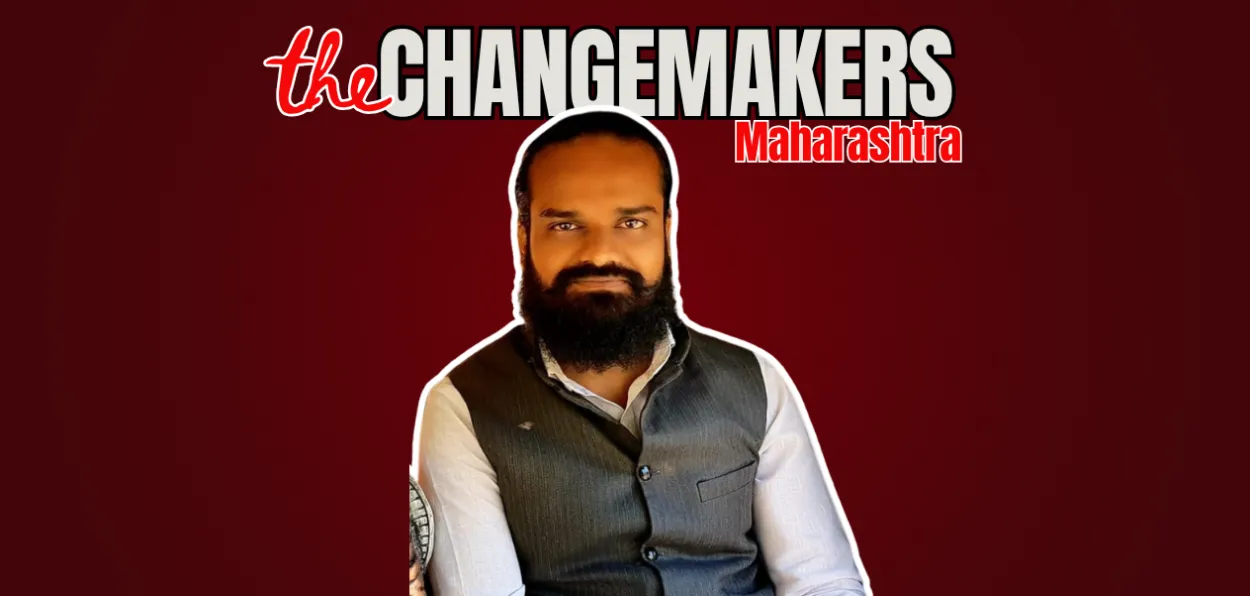
Fazal Pathan
Paigambar Shaikh has carved a distinct identity as a reformer who dares to challenge deeply rooted societal norms.
With unwavering commitment and innovative thinking, he has redefined the meaning of sacrifice and turned community service into a mission of unity.
“My father was a mason, and my mother sold bangles to ensure we had food to eat. Activism was nowhere in their vocabulary,” says Paigambar about his early life.
Yet those very challenges shaped his purpose. Today, he addresses pressing issues through initiatives that draw on religious teachings and communal harmony.
Importantly, his wife, Ayesha, is an equal partner in this journey, ensuring that his social activism is grounded in both family and faith.
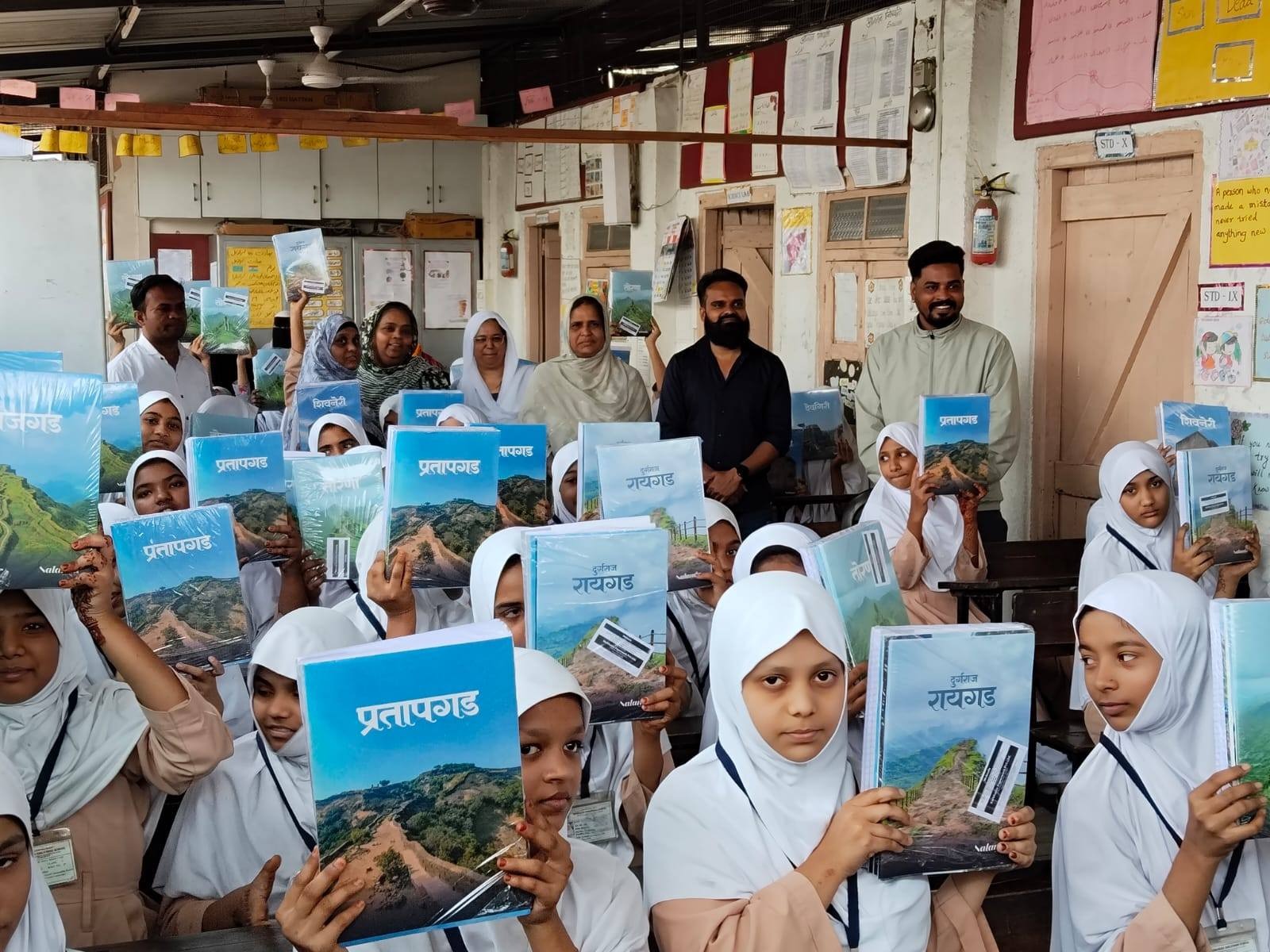 Students displaying books they received from Paigam Shaikh's arthik qurbani
Students displaying books they received from Paigam Shaikh's arthik qurbani
Among the many young Muslim activists yearning to change many things among the community, Paigambar stands out for his unique approach. His most impactful initiative redefines the concept of Qurbani (sacrifice) during Bakri Eid—not by rejecting tradition, but by deepening its purpose.
In today’s world, money is a valuable resource. So, why not make a sacrifice by donating it for education? He thought.
What began in 2014 as a local experiment has since evolved into a campaign. Paigambar encourages financial contributions during Bakri Eid, a festival when practicing Zakat to support the education of underprivileged children—especially those from tribal and rural areas.
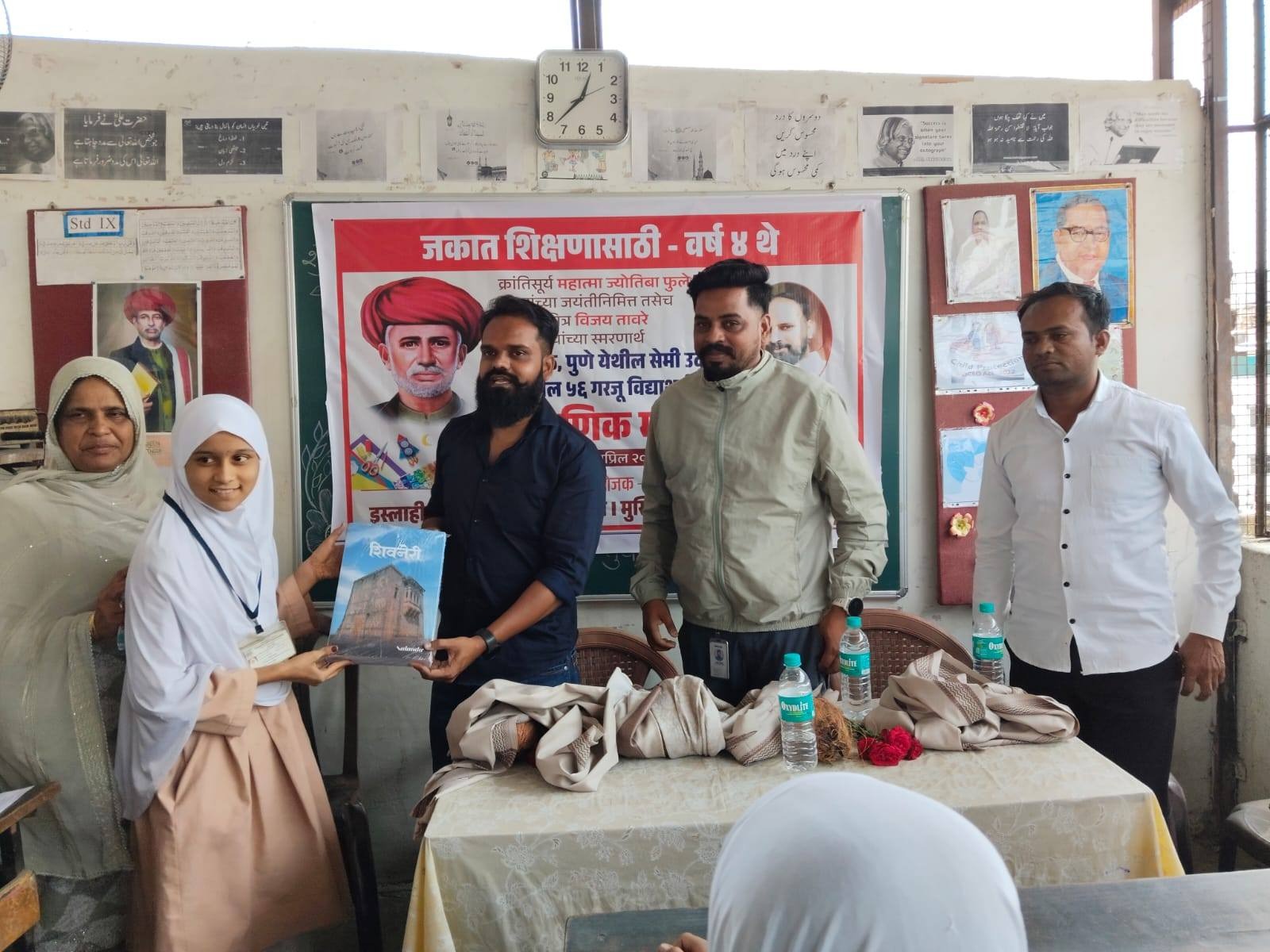 Paigambar Shaikh distributing books purchased with funds collected through Aarthik Kurbaniin an Urdu school in Maharashtra
Paigambar Shaikh distributing books purchased with funds collected through Aarthik Kurbaniin an Urdu school in Maharashtra
In 2018, the initiative gained widespread attention when he raised funds for victims of the Kerala floods. Donations poured in from people of all religions, especially Hindus, highlighting the universal appeal of compassion and shared humanity.
“Every year, I ask people to contribute financially instead of—or alongside—ritual animal sacrifice,” says Paigambar. Money supports the education of poor children. So far, we have raised ₹25–30 lakh and helped over 1,500–2,000 students across Maharashtra.”
His work has inspired other groups to adopt similar models, creating a ripple effect of change throughout the state.
Social reform is never easy, particularly in communities where tradition holds sway. Yet Paigambar believes transformation is both necessary and possible.
.jpeg) Paigambar Shaikh speaking at a function of the Buddhist community in rural Maharashtra
Paigambar Shaikh speaking at a function of the Buddhist community in rural Maharashtra
“Prophet Muhammad sparked a social revolution 1,400 years ago,” he says. “His teachings were rooted in justice and progress. The legacy continues—and must continue—today.”
He acknowledges that while Hindu society has a prolonged and more visible history of social reformers, Muslim communities are now stepping up. “There were only a few examples, but the tide is turning now. The support our campaign has received is proof that Muslims are ready for social change.”
Today, where historical figures are seen through the prism of politics and used for dividing the people, Paigambar’s bold stand on Chhatrapati Shivaji Maharaj, sets him apart from others.
Some extremist voices portray Shivaji as anti-Muslim, but Paigambar is quick to correct this distortion
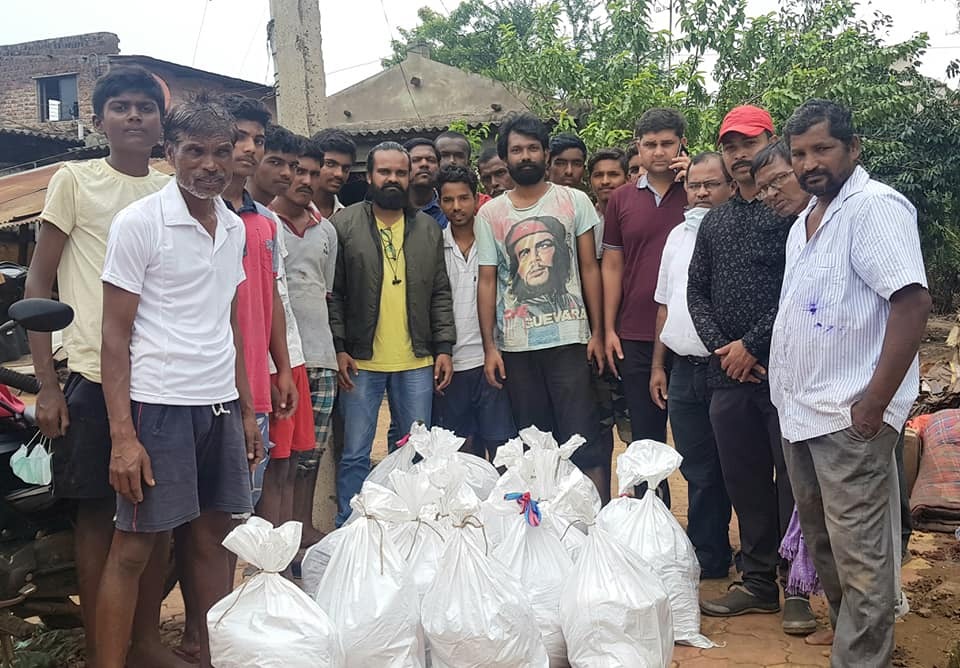
Paigambar Shaikh distributing relief materials in a disaster-affected village in Maharashtra
“Shivaji Maharaj fought against imperial oppression, not against Muslims,” he states. “His close associates included Muslim leaders like Siddi Ibrahim and Ibrahim Khan, who commanded his navy. Shivaji ruled for the people, not for a religion.”
To reinforce this inclusive message, Paigambar celebrates Shivaji Jayanti every year with the slogan “Jai Jijau, Jai Shivray!” His initiatives have inspired many in the Muslim community to reconnect with Shivaji's legacy as a symbol of justice and unity, thereby bridging religious divides in a historically polarized narrative.
Beyond religious and historical narratives, Paigambar is committed to addressing the societal rifts. He openly confronts issues affecting the Muslim community but does so through the lens of constitutional values and democratic dialogue.
When needed, he leads from the front—organizing rallies, giving speeches, and connecting people across castes and creeds. “People are drifting apart,” he warns. “Walls are rising between communities. We must tear down those walls and build connections instead.”
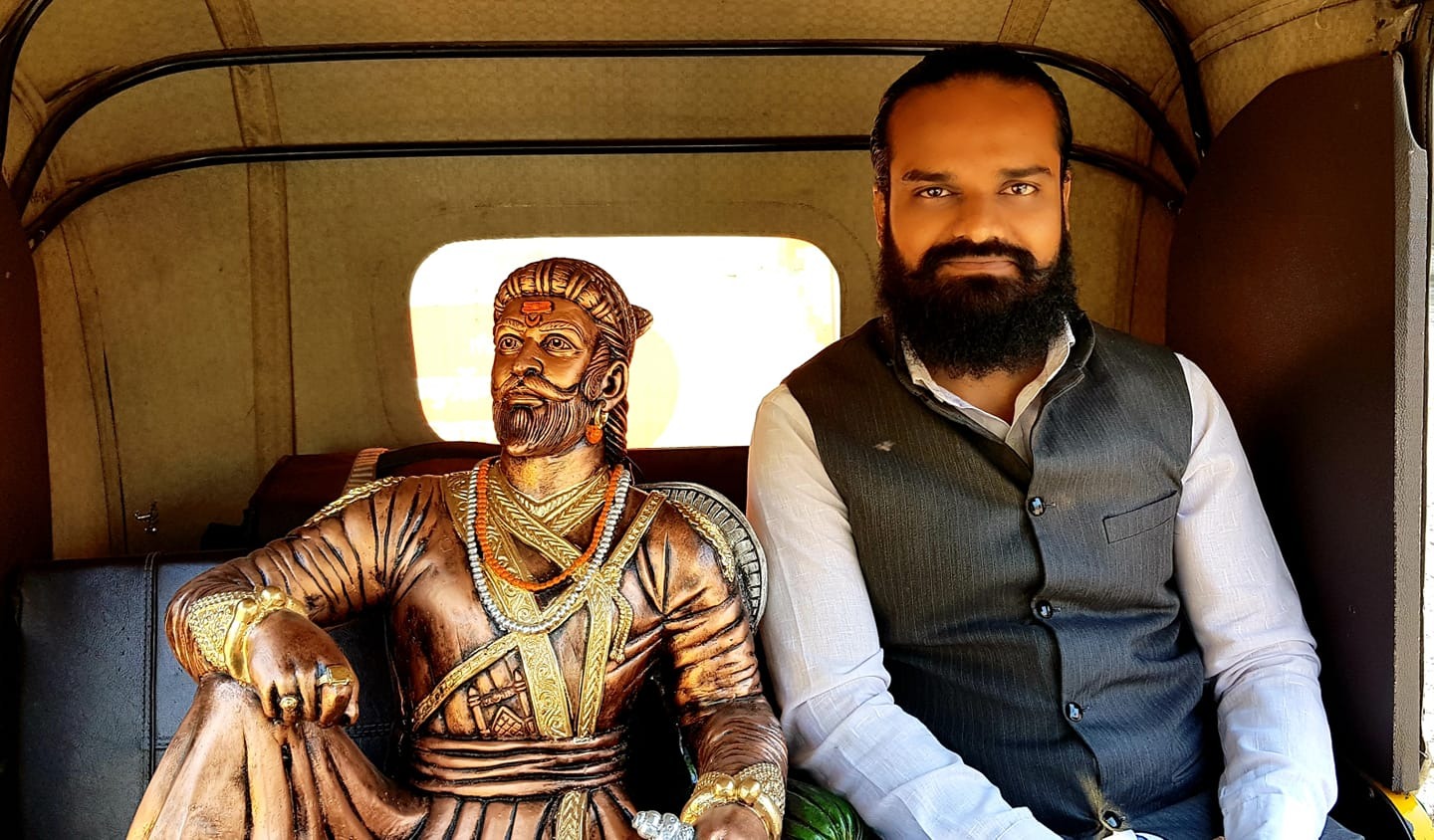
Paigambar Shaikh with the statue of Shivaji Maharaj
His mantra:“We must connect people”—echoes through every initiative he leads. Whether raising funds for education or reclaiming shared cultural legacies, Paigambar’s work is driven by unity, compassion, and action.
From encouraging educational donations during Bakri Eid to promoting a shared celebration of Shivaji Maharaj, Paigambar Shaikh is transforming not just perceptions, but realities. He doesn't merely raise his voice—he leads by example, showing how small acts of reform can snowball into state-wide change.
His courage and conviction inspire others across Maharashtra to become agents of transformation in their communities.
ALSO READ: Farah Shaikh is behind lifting of unspoken ban on women's entry into mosques
In a divided world, Paigambar Shaikh reminds us that true devotion is measured not by ritual alone, but by the good we do for others. His story is a call to conscience for every Indian to take one step closer to compassion, justice, and a shared future.
